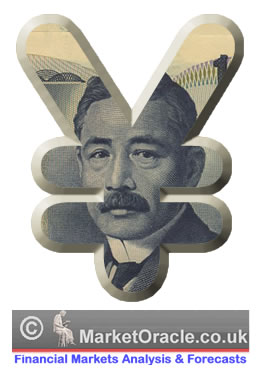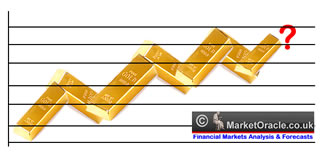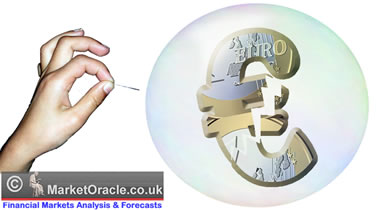Weighing Alternative World Reserve Currencies to the U.S. Dollar
Currencies / Fiat Currency Nov 21, 2009 - 12:28 PM GMTBy: Bryan_Rich
 The dollar has suffered a landslide of scrutiny and negative sentiment over the past eight months. Yet just nine months ago it was the currency that every investor and central banker in the world wanted to own! The world economy was on the ropes, and the dollar represented safety.
The dollar has suffered a landslide of scrutiny and negative sentiment over the past eight months. Yet just nine months ago it was the currency that every investor and central banker in the world wanted to own! The world economy was on the ropes, and the dollar represented safety.
Since then, fear has gradually abated, optimism has returned and this dollar, safe-haven trade has been reversing.
Within this recent retracement of the U.S. currency there has been endless speculation about the future role of the dollar as the world’s primary reserve currency. Moreover, there has even been conjecture that the dollar will no longer exist at some point in the near future.
But the case made for the vulnerability of the dollar falls short when it comes to naming alternatives …
Sure, if you believe inflation will be a problem at some point in the future, the purchasing power of the dollar will fall. But against what? Against other major currencies? I don’t think so.
If the Fed and other central banks around the world fail to remove the emergency stimulus before those measures translate into inflation, then ALL currencies will fall in value relative to hard, tangible assets like gold, real estate and other commodities … even financial assets like stocks and bonds. That’s global inflation.
 |
| The U.S. economic problems are pale in comparison to those of Japan’s. |
Is that possible? Certainly is. And that’s why the demand for gold, as a hard currency, has been rising. But I’m not arguing about inflation or deflation here today; rather I want to take a look at three of the often-suggested dollar alternatives.
Dollar Alternative #1— The Japanese yen …
Japan has one of the highest debt loads in the world, approaching nearly 200 percent of GDP. That’s more than twice what is projected in the U.S. And Japan‘s economy has suffered the sharpest contraction of any major economy in 2009 and is expected, again, to underperform the U.S. economy in 2010.
If you don’t like the dollar for its fundamental economic challenges, you surely can’t like the yen.
 |
| The Brits are flooding their economy with billions of pounds. |
Dollar Alternative #2— The British pound …
The UK economy is the most troubled and most volatile major, developed market economy. The money-printing program in the UK has been the most aggressive in the world. In fact, The Bank of England is still expanding its money printing program, as other major economies are winding down.
And while the UK central bank continues injecting billions of pounds into zombie banks, the economy continues contracting. At the same time, other major economies have technically emerged from recession.
This makes the British pound perhaps the least desirable currency for global investors.
Dollar Alternative #3— The euro …
First, let’s look at the two major drivers of currency values: Economic growth and interest rates …
The Eurozone is expected to underperform the U.S. in 2009 and 2010. And the interest rate outlook for the Eurozone, as projected this week by the Organization of Economic Cooperation and Development (OECD), is for rates to move from 1 percent to 2 percent by 2011.
But that’s lower, both on an absolute and on a rate-of-change basis, when compared to the United States. In the U.S., the OECD expects rates to normalize to 2.25 percent to 2.5 percent by 2011.
So the Eurozone has weaker growth and lower interest rate prospects than the U.S. So the euro falls short of the dollar on both comparisons. Indeed, in terms of purchasing power parity, the dollar should be 26 percent stronger against the euro based on fundamentals.
Clearly the dollar wins over the euro … the second most widely-held global currency … from the facts I’ve laid out above.
The U.S. is ground zero of the financial crisis and is the largest economy in the world, so it’s understandable why the world’s focus has shifted here during the worst economy since the Great Depression. And that tunnel vision can play a big role in global sentiment toward the U.S. dollar, too.
The U.S. economy has a burgeoning budget deficit, nearly 10 percent of GDP. And the debt load in the U.S. has risen from 65 percent of GDP before the crisis, to a projected 100 percent of GDP by 2011.
These are major issues for the administration to tackle. And these burdens threaten economic growth and recovery for the U.S., as well as the rest of the world, because of the world’s heavy reliance on the American consumer.
But in the Eurozone, things aren’t so rosy either …
The common currency in Europe is only in its tenth year of existence. And just eight months ago, there was speculation of a potential breakup of the euro. Italy and Ireland were said to be threatening to withdraw from the euro.
Since the crisis began, the EU’s Growth and Stability Pact, which sets the maximum budget deficit for euro member countries, hasn’t just been disregarded … it’s been completely blown-out of the water!
Only seven of the sixteen countries are operating within the maximum limit, and some countries are running budget shortfalls three and four times bigger than the ceiling set forth.
These are major problems, both structurally and politically. But even with the stimulative spending programs, many of the weaker EU countries are still deep in recession.
 |
| Weaker euro members are stuck — they can’t devalue their currency. |
Plus there’s one key issue that threatens the viability of the common currency: These countries would typically turn to currency devaluations to help stem the bleeding in their economies by increasing exports. But remember, as members of the euro, they can’t.
Even worse, they’re dealing with a currency that’s gained 20 percent over the last eight months against the currencies of two of their main trading partners: The U.S. and China.
To add to the challenges of the uneven economic performances within the Eurozone, the banking system in Europe is expected to see more write-downs of bad debt than that of U.S. banks.
So for those who think the euro is positioned to become the new primary world reserve currency — it’s not likely.
A better bet, in my opinion, is that the problems in the euro area will fall under the microscope again. And the viability of the euro will, again, be brought into question.
In this era of globalization, economies around the world have proven to be highly correlated and highly interdependent. So while the global economy is piecing together a tepid recovery, when looking for viable dollar alternatives among other major liquid currencies … there simply aren’t any.
Regards,
Bryan
This investment news is brought to you by Money and Markets . Money and Markets is a free daily investment newsletter from Martin D. Weiss and Weiss Research analysts offering the latest investing news and financial insights for the stock market, including tips and advice on investing in gold, energy and oil. Dr. Weiss is a leader in the fields of investing, interest rates, financial safety and economic forecasting. To view archives or subscribe, visit http://www.moneyandmarkets.com .
© 2005-2022 http://www.MarketOracle.co.uk - The Market Oracle is a FREE Daily Financial Markets Analysis & Forecasting online publication.



